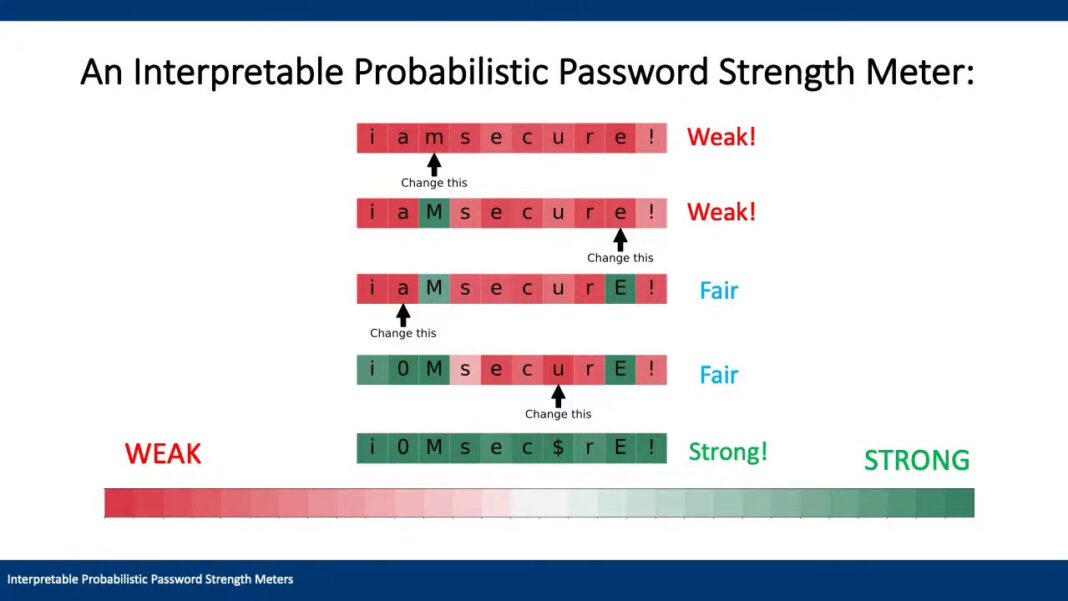In today’s digital age, password protection is crucial for maintaining the security of any event. With the increase in cyber attacks and data breaches, it is essential to have strong passwords to protect sensitive information. However, many event organizers overlook the importance of password strength and leave their events vulnerable to potential threats. In this blog post, we will discuss the top strategies for measuring and enhancing password strength for event security.
Importance of Strong Passwords for Event Security
The first step in understanding how to measure and enhance password strength is to recognize why it is essential. A strong password acts as a barrier against unauthorized access to sensitive data. It not only protects the event itself but also ensures the safety and privacy of attendees’ personal information. A weak password can be easily hacked, leaving the event and attendees vulnerable to identity theft, financial fraud, and other cyber crimes.
Moreover, with the rise of online event platforms and virtual events, password protection has become even more critical. As attendees log in from different devices and locations, having a strong password is crucial to prevent unauthorized access to the event platform and its content.
The Risks of Weak Passwords
Before delving into strategies for measuring and enhancing password strength, let’s take a look at the risks associated with weak passwords. These are some of the most common threats that weak passwords pose:
- Brute force attacks: This is when hackers try to guess a password by using automated software that runs through combinations of characters until the correct one is found.
- Dictionary attacks: Similar to brute force attacks, dictionary attacks use a database of commonly used words and phrases to guess a password.
- Phishing attacks: Hackers may send fake emails or messages asking for login credentials, tricking the recipient into giving away their password unknowingly.
- Social engineering: This is when hackers manipulate people into revealing their passwords through tactics such as pretending to be someone else or asking seemingly harmless questions related to the password.
To mitigate these risks, it is essential to have strong passwords that are difficult to guess or crack. Let’s look at how we can measure the strength of a password and enhance it accordingly.
Understanding Password Strength Metrics

Before creating a strong password, it is crucial to understand the metrics used to measure its strength. There are three main factors that determine the strength of a password:
- Length: The longer the password, the harder it will be to crack. It is recommended to have a minimum of 12 characters in a password.
- Complexity: This refers to using a combination of uppercase and lowercase letters, numbers, and special characters in a password. The more complex the password, the more secure it will be.
- Unpredictability: A strong password should not be easily guessable, which means avoiding common patterns or easily obtainable personal information such as birthdates, names, or phone numbers.
Password Strength Meters
One effective way to measure password strength is through the use of password strength meters. These are tools that evaluate a password based on the above-mentioned factors and provide a score or rating. Some popular examples include Kaspersky Password Checker, How Secure is My Password, and Password Meter.
Password strength meters are useful for creating strong passwords as they give immediate feedback on the complexity level of a password. They also highlight any weak areas, allowing users to make necessary changes and improve the strength of their password.
Tools for Measuring Password Strength

Apart from password strength meters, there are various other tools available that can help measure the strength of a password. Let’s take a look at some of the most commonly used ones:
Password Managers
Password managers are applications that store and manage all your passwords in one place. They not only help generate strong passwords but also remember them for you. Most password managers come with a built-in password strength meter, making it easier to measure and enhance the strength of your passwords.
Some popular password managers include LastPass, 1Password, and Dashlane. These tools not only help protect your event’s sensitive information but also make it easier to manage passwords for multiple accounts and platforms.
Online Password Strength Checkers
There are various online tools available that can check the strength of a password without the need for downloading or installing any applications. These tools work similarly to password strength meters, providing a score or rating based on the complexity and length of the password.
One advantage of using online password strength checkers is that they are easily accessible and free to use. Some examples include Password Checker by Norton, Rumkin Password Checker, and Microsoft’s Password Strength Checker.
Common Weak Password Patterns to Avoid
While knowing how to measure password strength is essential, it is equally important to understand common patterns that make passwords weak and vulnerable to cyber attacks. Here are some of the most commonly used weak password patterns that should be avoided:
- Sequential or repeated characters: This refers to passwords that have sequential letters or numbers (e.g., “12345” or “abcdef”) or repeating characters (e.g., “aaaaaa” or “11111”).
- Dictionary words: Avoid using actual dictionary words in a password as these can be easily guessed or cracked through dictionary attacks.
- Personal information: As mentioned earlier, avoid using personal information such as names, birthdates, or addresses in a password. Hackers can easily obtain this information and use it to guess a password.
- Common substitutions: Using numbers or special characters to replace letters in a word (e.g., “p@ssw0rd”) may seem like a good idea, but these are easily predictable and can be cracked through brute force attacks.
- Password reuse: Using the same password for multiple accounts is a common practice, but it can be dangerous if one account gets hacked. It is crucial to have unique passwords for each account.
By avoiding these weak password patterns, you can significantly enhance the security of your event and protect it from potential cyber threats.
Implementing Multi-Factor Authentication (MFA)
While having a strong password is essential, it is always a good idea to have an extra layer of security in place. This is where multi-factor authentication (MFA) comes in. MFA requires users to provide multiple forms of identification before gaining access to an account or platform. These can include a password, a one-time code sent to a registered phone number or email address, or biometric authentication such as a fingerprint or face scan.
Enabling MFA on your event platform adds an additional barrier against unauthorized access, even if a hacker manages to obtain the password. It is especially useful for virtual events, as attendees log in from various devices and locations, making it more challenging to verify their identity.
Tips for Creating Strong Passwords
Now that we understand the importance of strong passwords and how to measure their strength, let’s look at some tips for creating them:
- Use a combination of uppercase and lowercase letters: Varying the case of letters in a password makes it harder to guess or crack.
- Include numbers and special characters: Adding numbers and special characters can significantly increase the complexity and strength of a password.
- Use passphrases instead of passwords: A passphrase is a combination of words or phrases that are easy for the user to remember but hard for hackers to guess. For example, “MyEventIsSecure!” is easier to remember than “hF4&k
lP2g@” and just as complex.
- Avoid using personal information: As mentioned earlier, avoid using personal information in passwords as these are easily obtainable and predictable.
- Change passwords regularly: It is recommended to change passwords every 3-6 months to ensure continued security. This also helps in case of any potential data breaches or stolen passwords.
- Use different passwords for different accounts: As mentioned earlier, having unique passwords for each account significantly reduces the risk of a data breach.
By following these tips, you can create strong passwords that are difficult to guess or crack, providing enhanced security for your event.
Regular Password Audits and Updates
Apart from creating strong passwords, it is crucial to regularly audit and update them to maintain their strength. This means periodically checking for any weak patterns or outdated passwords and making necessary changes.
It is also a good idea to encourage attendees to update their passwords regularly, especially for virtual events. This can be done through reminders or by implementing password expiration policies on the event platform.
Educating Event Staff on Password Best Practices
Lastly, it is crucial to educate event staff on password best practices. Your staff members are responsible for handling sensitive information related to the event, and it is essential to ensure they are well-informed about password security.
This can be done through training sessions or by providing a document outlining password best practices. These best practices should include creating strong passwords, avoiding common weak patterns, regular audits and updates, and implementing MFA.
Conclusion
In conclusion, having strong passwords is crucial for maintaining the security of any event. By understanding the metrics used to measure password strength, using tools and strategies to enhance it, and avoiding common weak patterns, event organizers can significantly reduce the risk of cyber threats. Implementing MFA and regularly auditing and updating passwords further adds to the overall security of an event. By educating event staff on password best practices, organizers can ensure everyone involved in the event is taking the necessary precautions to protect sensitive information. So, don’t overlook the importance of strong passwords for event security and incorporate these strategies in your event planning to ensure a safe and successful event.

